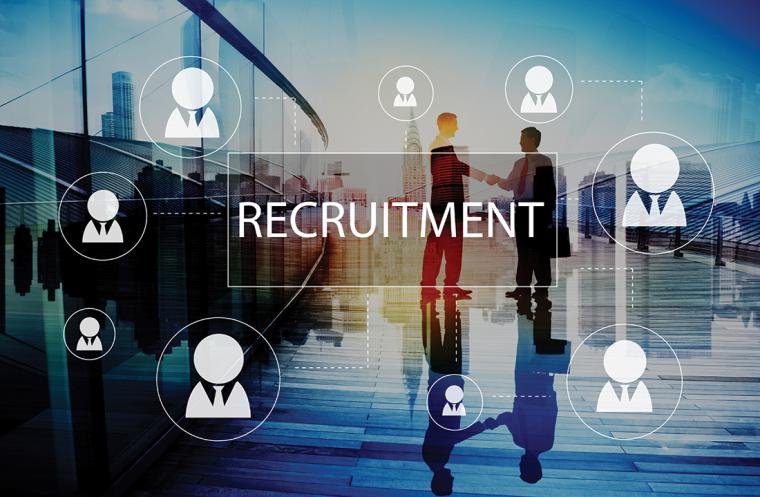
Anticipation is building for a robust talent pool to steer the sports and events industry into the future, with notable programs such as Sports Business Journal’s 40 under 40, FEVO sports industry NextGen recipients, the IOC young leader program and the NCAA emerging leader program contributing to this phenomenon. There are many resources professing the general or universal competencies of effective leaders across all industries ranging from communication and analytical skills to emotional intelligence and resiliency.
Considering the specific sector of sports and event management, however, there are five over-arching competencies that will be integral for the next generation of leaders to lead effectively beyond the twenty-first century. These competencies include tech-savviness, macro-insightfulness, adaptability, innovation and collaborative negotiations.
Tech-Savviness: Future leaders in sports and events will be knowledgeable of the capabilities of Web 3.0 which includes cloud-based programs, blockchains, non-fungible tokens (assets), the metaverse and artificial intelligence. The dynamic sport ecosystem has already pushed past digital technologies to usher in new tools and programs emphasizing real-time, data-secure efficiencies for ticketing, sponsorship, media, operations and other business areas. Future leaders will need to know the capabilities of sport-specific or event planning tools to recreate virtual environments or create immersive experiences in digital worlds that complement live interactions. A demand is building for sharing live events and sports through augmented reality. Tech savviness equates to viewing technology as a solution to business development, not a challenge.
Sportradar is one of many examples of companies that thrive on having tech-savvy leaders. The company assisted in revolutionizing real time for major golf and tennis tournaments. Annually, Sportradar provides real time scores and data analytics for approximately 12,000 basketball games, soccer matches and other sports around the world. Livestreaming and content distribution on a variety of platforms is another service of Sportradar where fan engagement is a priority. The use of augmented and virtual reality are also advancements within the company where the tech-savvy leader is bullish on being an early entrant into avenues that integrate technology with live sports and events.
Macro-Insightfulness: Future leaders in sport and events need to be cognizant of large-scale forces that can affect the industry, market or their organization. Generally, executives naturally focus on big-picture phenomena rather than minute operational details of a business. More than ever, sport and event leaders need to analyze, observe and understand the forces that can derail organizations as was the case with the global pandemic. In sports and events, anticipation of even subtle disrupters can make a huge difference in profit margins or approaches to handling situations. All executives should read and consume information on a regular basis, with those in sports and events choosing material wisely that aligns with and provides keen insight into their sector of the industry.
Leaders within the International Olympic Committee (IOC) closely monitor geo-political challenges such as strained relations between countries that may be counterproductive to the mission of using sport as a symbol of unification and peace. The lessons learned from postponing the 2020 Tokyo Olympics to 2021 without spectators is one which suggests macro-insightfulness will be a necessary competency for future leaders in sports and events to survive in the face of a global pandemic or other unforeseen crises.

Adaptability: An openness to change, opportunities and possibilities will remain crucial for next-generation leaders in sports and events. More than ever, the mindset of being flexible will be paramount to move organizations and people forward in the industry. Adaptability helped companies survive post-pandemic and lessons learned by leaders included how to adapt within an ecosystem stimulated by the possibilities offered through virtual work. While technological enhancements made adapting to virtual work easier and more efficient, technology continues to enter the market at lightning speed. Additionally, adaptability becomes a need as organizations increasingly face economic, political and social uncertainty.
Effective leaders are those who remain flexible and amendable to fluctuating circumstances that may disrupt or derail organizational goals. The ability to pivot or make subtle adjustments is a necessary skill for leaders now and in the future. A large extent of adaptability is embracing the technological changes that enter the market and being able to leverage that technology to enhance operations or opportunities. Sports and events also require crisis plans that hinge on being adaptable when needed.
Leaders in the NFL (and other professional sports organizations) need to demonstrate adaptability as they send teams overseas in an effort to increase their global presence and grow the brand internationally. Adaptability is necessary in scheduling to allow additional rest for players who face challenges with time zones. Adaptability was also necessary when WNBA teams complained about the rule disallowing charter flights. The WNBA commissioner first extended an exception for Brittany Griner following her release from a Russian Prison on drug charges due to the intense media attention the all-star player received on commercial flights. Finally, the rule was amended to allow teams to charter private flights for back-to-back road games and the playoffs.
Innovation: The ability to develop and implement new ideas and approaches to resolve complex problems or seize emerging opportunities will be an important skill set for next-generation leaders in events and sports. As situations change, doors close, ambition ceases or walls emerge, the leader who can think creatively will have a greater likelihood of success. Being innovative, whether in a small or enormous way, can make a difference in profitability or market position.
Leaders do not need to be skilled in every nuance of operations, marketing, finance, compliance and other business functions, but they need to assist in finding solutions when roadblocks hit. Where adaptability is a skill to make changes, innovation addresses how this will be done. Technological advances and increased market pressure have fueled the need for future leaders to become innovative in their thinking and approach to managing people and projects.
In response to the global pandemic, the Boston “Virtual” Marathon was created. The innovative approach allowed runners to race remotely and submit their times via an app. The revised format allowed the rights holder to sustain sponsorships and it revolutionized road races. Innovative leaders can incorporate a simultaneous virtual racing option whereby entry fees are still paid in order to create an additional revenue stream.

Collaborative Negotiations: In an age where resources, especially financial, are difficult to procure, collaboration offers a logical solution to stay on task and achieve or exceed goals and objectives. Being able to procure collaborative partners is a competency that will be highly valued within the next generation of sport and event leaders.
Negotiating a collaborative relationship is both an art and a science. The future will see a need for more collaborations to effectively organize safe and profitable events. Leaders who are steadfast on strategic relationships that will maximize revenue opportunities will be those who can negotiate win-win collaborative connections.
The LIV Golf/PGA TOUR issue may serve as an ongoing example of this. To date, collaborative negotiations have avoided a lawsuit and paved the way for other investors to enter the marketplace of the professional golf industry.
These five competencies will be a must for future leaders in sports and events; however, they do not eliminate the need to remain business-focused and behave ethically. Leaders, by their very nature, work with followers and the ability to motivate followers will always be a great necessity, as will the need for effectively collecting and using analytics to study trends and make data-driven decisions.
While some may question whether these five future-oriented competencies can be classified as current skill sets, the next-gen leaders will need to cultivate both traditional and new dimensions to truly be effective. Sports and events exist in a dynamic ecosystem requiring forward-thinking professionals to be adaptable, innovative and tech-savvy. Skills in solidifying collaborative negotiations and remaining grounded through macro-insightfulness will increase the success of future leaders in the industry. SDM

